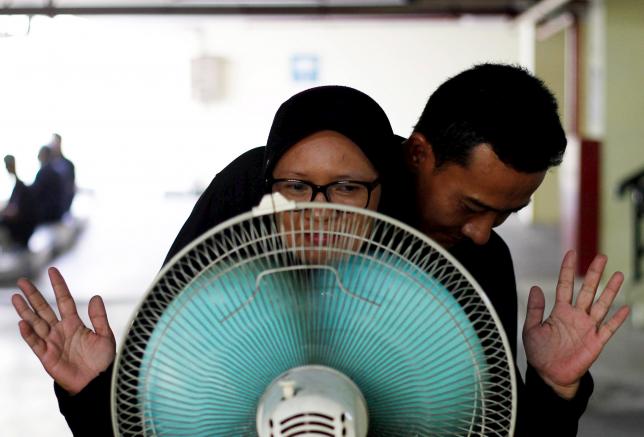
Ladyjek and Sister Ojek, the most recent entrants to the female-only taxi services, have seen business take off less than four months after starting operations in the predominately Muslim nation.
Levelling the playing field: Female government job quota to be increased to 7%
"In other public transportation such as public minivans, there are too many men in such a tight space, which makes me feel very uncomfortable. However, I feel safe if it's Ladyjek because the bikers are also women," Uki Pratiwi told Reuters before hopping on a motorcycle driven by a Ladyjek employee.
Since its launch in October, the Ladyjek mobile app has been downloaded about 50,000 times and hundreds of Indonesians use its services each day, said Ladyjek founder Brian Mulyadi.
The company employs about 2,400 drivers, mostly housewives or students, and hopes to soon expand outside the capital.
Meet Pakistan's first female truck driver
Dozens of motorcycle-sharing companies have set up in Indonesia in the past year or so, seeking to emulate the success of Go-Jek, the first firm in Jakarta to use smartphones to tap into the country's millions of traditional motorcycle taxis, known as ojeks.
"The other online motorbike taxi services are very convenient but there's no service to take care of the safety and comfort of women. That's why I created Ladyjek," Mulyadi said.
Other companies similar to Ladyjek include Ojesy or Ojek Syari, which offers hijab-wearing drivers.
The rape of a woman in a public minivan sparked uproar in Jakarta last June, but critics say the government has done little to prevent future cases.
Women’s Excellence Month: The shushing and shaming ends now
"The government hasn't really done much. Even when there are passengers who felt they were harassed and reported it to authorities, the police are often confused about how to tackle the problem," transportation analyst Azas Tigor Nainggolan said.

















COMMENTS
Comments are moderated and generally will be posted if they are on-topic and not abusive.
For more information, please see our Comments FAQ